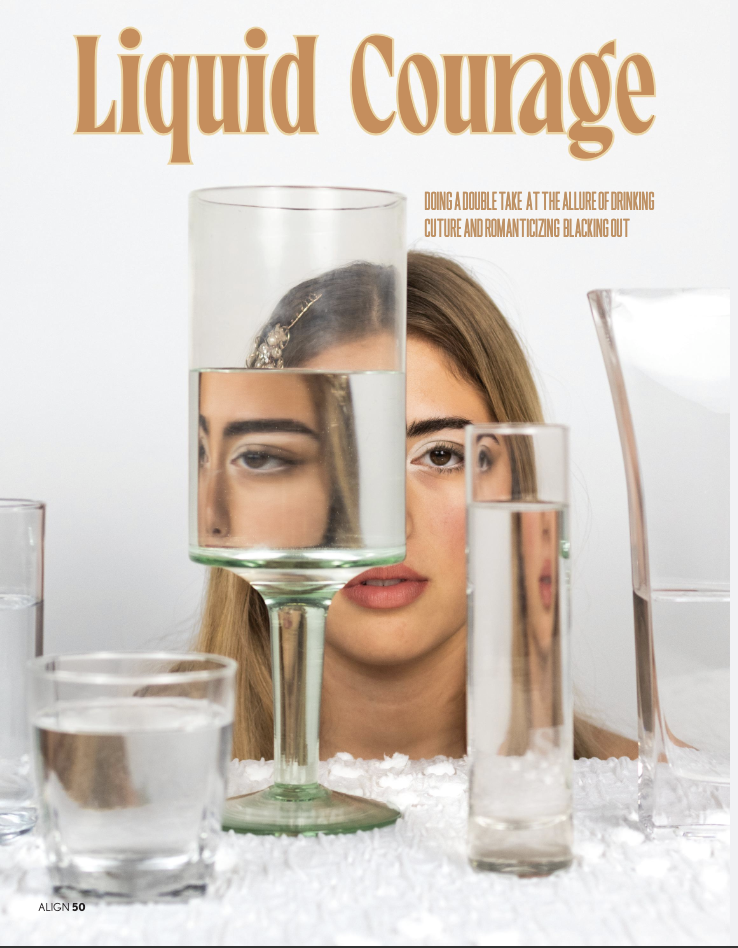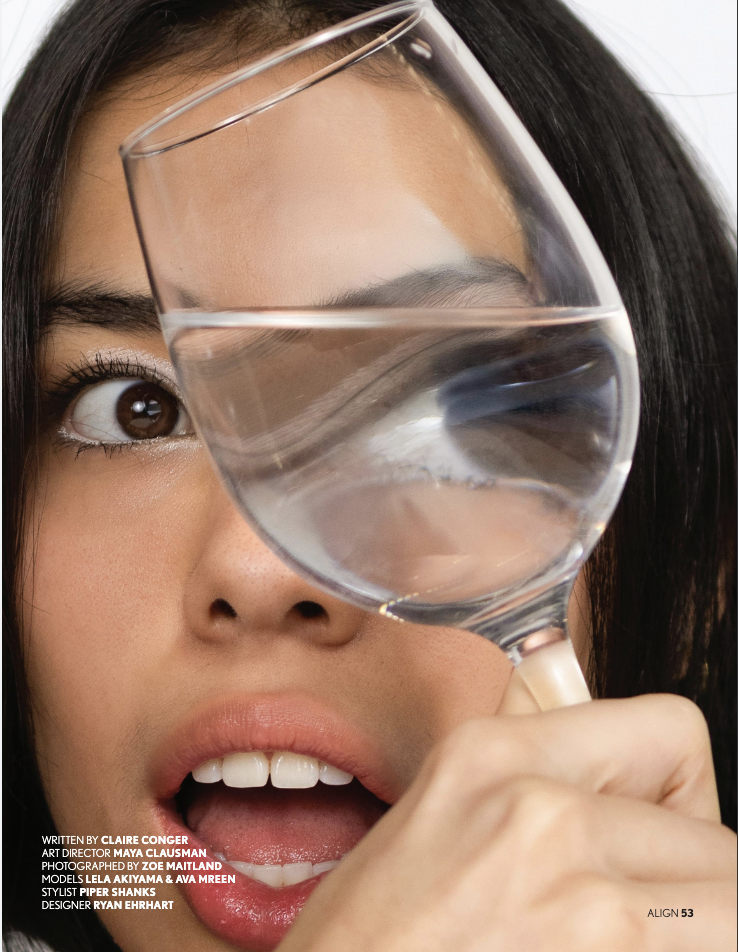Sally LaChica, a University of Oregon senior and Psychology major, knew the drunk alter ego of herself as “Shelly.” According to LaChica, Shelly was a blackout drunk whose use of substances stemmed from her experiences with depression and anxiety. Shelly’s actions caused the people around her to become alarmed and often led to LaChica (as her sober self) making apologetic calls the next morning.
“We try to escape weird feelings using alcohol but seem to forget that alcohol is a depressant and it's going to make you feel worse,” LaChica said. “It's gonna allow you to release and relax and maybe feel a little bit laid back and forget what's happening in the present or in the future or in the past. But as soon as you sit down to stop for a second, it's all gonna hit you. And even if you can't name that feeling, it's still there. You can't sever that part by yourself.”
LaChica’s last appearance as Shelly was in 2023 when she blacked out at a pool party and hit her head in the bathroom while her friends were trying to hold her body up to help her. She was rushed to the hospital and suffered a concussion.
“That was a wake-up call for me. I don’t plan on being Shelly ever again.”
LaChica still drinks with friends, but now she does so with more intention to prioritize fun while balancing safety and awareness. Reflecting on her own and others' behavior, she sees how personal issues can manifest when drinking. She believes that instead of focusing on the humorous debrief, it’s more helpful to explore why someone acted in a way that might have hurt or alarmed others.
Margo Cummings, a UO senior studying psychology feels that some people romanticize being out of control and having a reason to justify their drunk actions. “It’s easy to blame bad things you’ve done on something else,” she said. “It’s also easy to bond with other people when you believe yourself to be more outgoing and fun if you’re drinking. I also think drinking as a whole is romanticized because the social stereotype is that drinking makes you fun and gives you friends.”
Drinking can become an accessory of belonging. Heavy drinking is part of the social fabric; college culture normalizes the idea of drinking to excess. Blacking is seen as a game — a competition to see who can drink the most.
The night's ritual begins with sipping a tequila soda, sitting cross-legged in front of the mirror while getting ready. Steady hands apply a third attempt at winged eyeliner as an influx of texts come through, altering the group chat of each person’s outfit choices. An hour later, the living room is full of friends. The contents of the bar cart are splayed across the countertop, alongside a slew of various BYOB pregame drinks. It’s finally the weekend. This calls for a group shot! Where’s the tequila? After an hour of yapping, nonsense, and taking pictures, it’s 10:30 p.m. Nobody wants to get stuck in a line, so drinks are chugged, phones are searched for, shoes are on, and – oh, one more shot for the road.
At the bar, laughter rises and falls like waves. Familiar faces blend with new ones as the buzz of conversation and booze makes the hours fly by. Another song plays, laughs are shared and the empty pitcher PBR is replaced with a full one. It feels like the night is slipping by. Before long, you’ve stumbled home to fall asleep with half of your eyeliner still intact.
The next morning, with a heavy head and droopy eyes, you gather to debrief the previous night. Did that really happen? Who kissed who? After the jokes, regret creeps in as you remember doing things you’ll never live down. Your head is spinning and your body feels like it’s been through a war.
In tandem with the tradition of the debrief is the reality of drinking and blackout culture. This phenomenon is romanticized and often centers around the desire for social connection, confidence, and escape from everyday pressures.
The consequences are often downplayed, leaving out the less-than-glamorous side of it all. The fleeting euphoria of risky decisions and the thrill of not remembering it all can feel liberating. However, amidst the fun, the romanticism of blacking out is accompanied by real consequences. One must face the reality of the aftermath: the emotional and physical hangover, the strained friendships, the health toll, and the financial impact, just to name a few.
“Something I’ve noticed in college is to keep drinking until you can’t anymore. It isn’t as common to just casually have a couple drinks and socialize. It is very normalized to keep buying or drinking drinks until you can’t,” senior and advertising major Luke Domenick said.
For some, alcohol removes inhibitions, allowing them to engage, dance, or try something new. Others become more talkative, expressive, or affectionate. Some become introspective and uninhibited, while others find themselves impulsive, emotional, or unexpectedly bold.
Each drink can bring out a different version of our identity. Sometimes they can be fun, but also reckless or even scary.
“Confidence can be manufactured by tequila and accountability while drunk is non-existent,” Savannah College of Art and Design junior Emma Hock said.
The stories of lost inhibitions, bold decisions, and unforgettable memories may hold a certain appeal. But they often mask the reality of the emotional and physical toll that can follow.
By being mindful of our relationship with alcohol, we can redefine the experience – not as a means to escape or to validate ourselves – but as a way to enjoy meaningful connections, maintain our well-being, and keep the memories intact. It’s possible to continue romanticizing those special moments of going out with friends without sacrificing who we are and our safety in the process.


